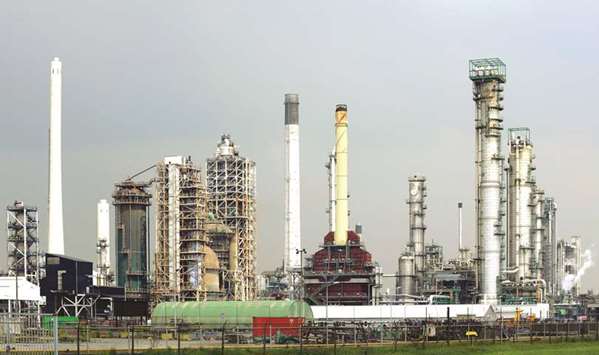Exxon Mobil Corp is pining for a comeback in Brazil, where its track record has been bruised by dry holes and a partnership that fell apart.
Petroleo Brasileiro and Exxon, first reported to be talking in April, have continued their dialogue in recent months, according to people familiar with the discussions who asked not to be named because they’re private. The talks have occurred as Brazil gets set to auction drilling rights in the pre-salt, the offshore zone that’s already producing more than onemn barrels a day of crude, or about half of Brazil’s output.
Among the items discussed are the chance of a strategic partnership between the companies as well as possible options in oil-rich plots – known as the Transfer of Rights fields – that Petrobras has partial control over but has been struggling to develop without partners, the people said.
An agreement would let Exxon rebound in a country where it suffered both a rare exploration failure and the loss of a key local partner after former billionaire Eike Batista’s oil company went bankrupt in 2013. And it would boost the US explorer’s competitive profile within Latin America at a time when other oil majors are already moving into place.
“Exxon has been very unlucky in Brazil, but I think they are returning,” said Adriano Pires, who heads the energy consulting firm CBIE. Total and Royal Dutch Shell “already have a big presence, and the Chinese are growing,” he added. “It’s strategic for Exxon to position itself in the pre-salt too.”
Exxon’s renewed interest also underscores the transformation Brazil has undergone under President Michel Temer.
Temer’s government has worked to unwind the state-centred economic model pursued by his predecessors, seeking to draw outside investment into the country.
Under the new rules, Petrobras no longer controls all output from the pre-salt region, which will be opened to outside operators in October for the first time since anyone knew how vast the deposits are. Petrobras referred questions about Exxon to a May 9 statement, where it denied ongoing negotiations for a strategic alliance, but said it is in constant contact with companies in the oil industry to study opportunities and share experiences. Exxon said in an emailed statement that it doesn’t comment on its business plan.
The talks come at a key time for both companies. Petrobras is working to steady itself financially, looking to raise $21bn from asset sales to help slash debt. Exxon, meanwhile, has reported declining output for five straight quarters.
A previous push by Exxon into Russia, engineered by former CEO Rex Tillerson, has been largely held in check by US sanctions. Now, the US explorer may be pushing to expand its footprint south. It’s already taken one step, identifying the second giant oil field found in two years in Guyana, which shares a border with Brazil. That find almost doubled the country’s still untapped reserves to as much as 2.75bn barrels.
Brazil’s nearby pre-salt region offers a similar potential to build scale.
Exxon’s history in Brazil dates back to 1912, when John D Rockefeller’s Standard Oil sold kerosene and gasoline in cans. Although foreign companies were chased out of the Brazilian oil sector during nationalization campaigns in the 1950s and again in the 1990s, Exxon was one of the few US majors to buy pre-salt exploration rights in 2005, when the newly liberalised region’s potential was still uncharted.
Exxon then drilled three dry holes in one of the most expensive regions to explore. After that, the country halted new projects in the oil-rich geology to give it time to draft new nationalist regulations covering the region.
Those rules were only softened last year after the oil price crash strained Petrobras’ and the government’s finances. Exxon is now keen to participate when Brazil holds three bidding rounds in September and October, Jeffrey Woodbury, the company’s vice-president of investor relations, said in the second-quarter earnings call on July 28.
“Brazil has a very nice endowment, resource endowment, high quality, great geology,” Woodbury said then. “We need to see what’s being offered in terms of the potential blocks as well as the participation structure, and that will guide us in terms of the level of interest.” Shell, Total, Statoil ASA and Chinese producers are also expected to compete in the pre-salt rounds in October, and to pursue further partnerships with Petrobras. BP and Chevron Corp have assets in Brazil, but currently have no exposure to the pre-salt fields in the Santos Basin.
“In our view, the oil majors will dominate pre-salt auctions, including those majors that currently have low participation in Brazil’s oil sector,” Banco Santander analyst Gustavo Allevato said in a August 30 report.
If Exxon decides to pursue a strategic partnership like the one Petrobras signed with Total in December, it could include distribution assets such as import facilities in Brazil’s northeast where there’s no refining capacity, and could take Exxon’s surplus fuel from the Gulf of Mexico, according to Pires.

An ExxonMobil refinery stands in Rotterdam, the Netherlands. Exxon is pining for a comeback in Brazil, where its track record has been bruised by dry holes and a partnership that fell apart.
